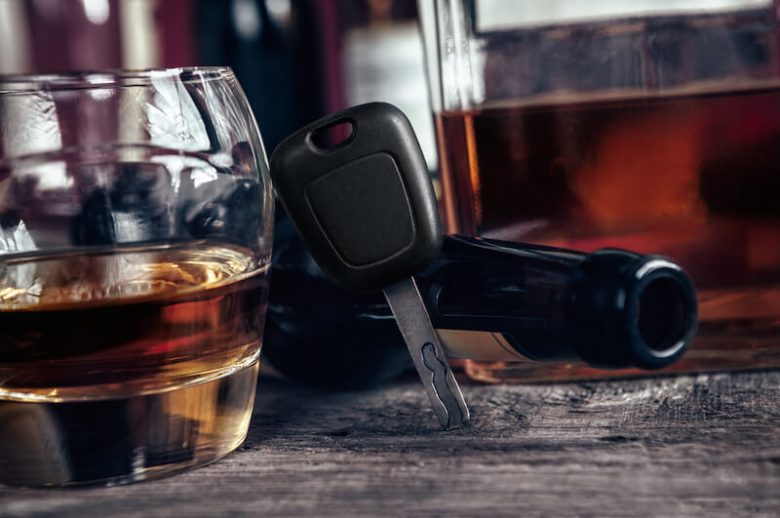The largest state (by area) is home to only about one million registered vehicles, even though population is just over 700,000 as of 2020. Alaska is bigger than Texas, California, and Montana combined! Many cities and towns in The Last Frontier State don’t have access to roads, so some residents can only travel by ferry, plane, or dog-pull sled and snowmobile. In fact, all-terrain vehicles (ATVs/UTVs), moose-buggies, and snow machines in AK must be registered but not titled.
Use eTags© to Quickly Complete Your DMV Service. Renewals, Title Transfers and More, All Online!

In Alaska, 41,000 impaired driving arrests were made from 2007-2016, including 12,356 for 25-34-year-olds according to the Alaska Highway Safety Office
According to the National Highway Traffic Safety Administration, 45% of total fatalities involved alcohol in Alaska in 2018. By the time COVID-19 hit, impaired driving hiked up across the nation, including drugged driving trends. In 2021, the NHTSA’s “Fatality Analysis Report System” showed that 20,160 people died in motor vehicle crashes in the first half of the year — up 18.4% from 2020. The U.S. Dept. of Transportation says that’s the largest number of projected fatalities in that time period since 2006.

Those most at risk for drunk driving are young people, motorcyclists and drivers with prior DWI convictions
What’s a DUI In Alaska
In the Last Frontier State, it’s a criminal act to drive under the influence of alcohol or drugs including marijuana, cocaine, benzodiazepines, inhalants and other prescriptions. You’re considered legally drunk if your blood-alcohol content (BAC) is 0.08% or greater. For those who are commercial drivers, the BAC drops to 0.04% — that’s about two drinks, but judgement is slightly impaired.
There’s nothing in the AK’s constitution preventing sobriety checkpoints, but the state doesn’t really conduct them
Alaska Zero Tolerance Law 14-21 years old
For those who are 14 to 21 years old, they can face charges regardless of the BAC amount. In other words, Alaska Zero Tolerance Law involves fines, jail time, alcohol rehab, and driving suspensions, for any alcohol level in teens behind the wheel. Administrative penalties will also result in losing your driver license. The length of the suspension depends on how many times someone was convicted. For example, a third offense in Alaska under the Zero Tolerance Law will cost a driver 90 days without driving privileges.

0.04 – 0.06 BAC: feeling of well-being, lower inhibitions, and relaxation
In AK, if you’re pulled over because a police officer suspects you of a DUI or OUI (operating under the influence) they already have permission to administer a breathalyzer test or blood test. That’s because having a driver’s license in AK means implied consent. Refusing these tests is a separate offense, even if you don’t actually get a DUI. Why? Alaska enforces penalties both on criminal and civil charges.
Administrative penalties for DUI civil charges
The DMV in Alaska can revoke or completely cancel your driver license for refusing to take an alcohol or drug test. There are fees, ignition interlocking device requirements, retesting for your license and more involved. For a first offense, the DMV will suspend your license for 90 days as part of these administrative penalties. A second offense will cost you a year, a third will result in a three-year suspension. After that, it’s five years.
If you get a DUI in Alaska while driving a commercial vehicle, you can never drive a commercial vehicle again; disqualification for life
Criminal penalties for felony offenses in AK
A first DUI offense in Alaska is a misdemeanor; it gets you 72 consecutive hours in jail, $1,500 in fines and 6 months worth of using an ignition interlock device. You also lose your driver’s license for three months. If you get a second DUI, imprisonment goes up to 20 days and the fine to $3,000 and there’s a driver’s license suspension for at least one year.
.

If you have at least two prior convictions in the past decade, driving under the influence in Alaska is considered a class C felony. Jail time for a third offense has a mandatory minimum of 120 days and minimum fine of $10,000. The driver also loses his or her driver’s license permanently as well as their vehicle and their registrations. Three prior convictions result in 240 days in jail, and four past offenses equal 360 days of imprisonment.
Assuming you’re not being charged with a Class C felony, jail time for a third-time OUI in AK is anywhere from 60 days to one year, with fines between $4,000 to $25,000. There’s at least three years of driver’s license suspension. It’s double the jail time for a fourth offense.
Alaska driver’s license reinstatement after UOI
If you’ve been charged with drinking and driving and had your license revoked, there are multiple actions to take before you reinstate your driving activity. You must pass a written and vision test, and may even have to take a road test depending on your specific circumstance. There are also reinstatement fees to pay. If you were convicted in court, you may need proof you’ve completed the Alcohol Safety Action Program.
Stay sober, or designate a sober driver!
